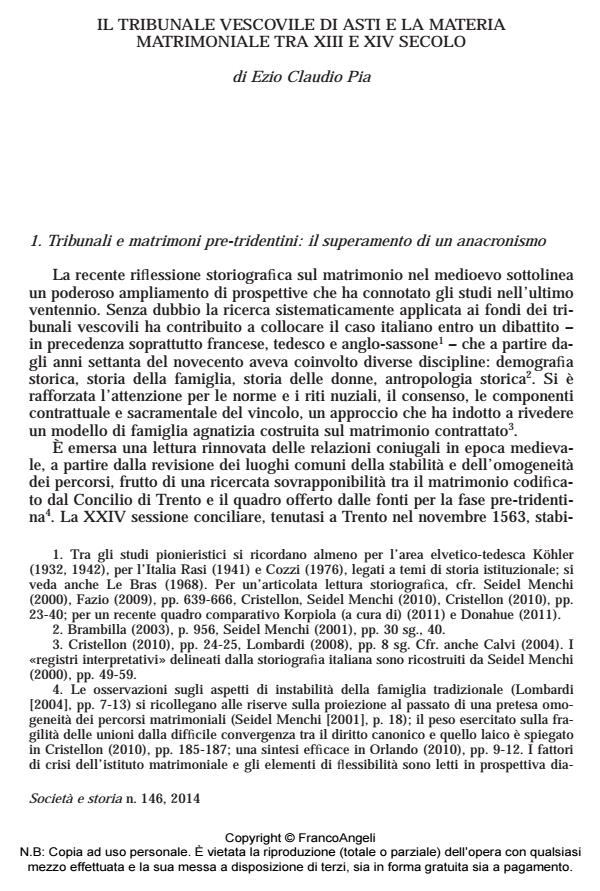Asti’s episcopal court and matrimonial matters (13th - 14th century)
Journal title SOCIETÀ E STORIA
Author/s Claudio Pia Ezio
Publishing Year 2015 Issue 2014/146
Language Italian Pages 29 P. 651-679 File size 102 KB
DOI 10.3280/SS2014-146002
DOI is like a bar code for intellectual property: to have more infomation
click here
Below, you can see the article first page
If you want to buy this article in PDF format, you can do it, following the instructions to buy download credits

FrancoAngeli is member of Publishers International Linking Association, Inc (PILA), a not-for-profit association which run the CrossRef service enabling links to and from online scholarly content.
During the last two decades, Italian historiography has devoted much interest to matrimonial matters, thus aligning research on this theme with the European debate. Within the panorama of matrimonial trials, the documents pertaining to Asti’s episcopal court (c. 1265-1320) are remarkable in terms of precocity and continuity. The court’s administration of justice was "reactive" in nature and heavily oriented towards the reconstructions proposed by the parties. In the few cases relative to individuals from the higher echelons, the court took into account the status of the confronting parties. In other cases, the court redefined relationships which were polymorphic and flexible in character. This was partly due to the weakness of the web of social ties, to their mobility, or to the uncertainty with which family structures could be reconstructed; structures which seemingly did not preclude the fostering of kin relations. The court thus exercised a reordering and orienting function that at times accepted the actors’ requests, but did not hesitate to impose limits to the informality of the unions by denying their legitimacy.
Keywords: Episcopal court; marriage; social status; consanguinity; mobility; Asti.
Claudio Pia Ezio, Il tribunale vescovile di Asti e la materia matrimoniale tra XIII e XIV secolo in "SOCIETÀ E STORIA " 146/2014, pp 651-679, DOI: 10.3280/SS2014-146002